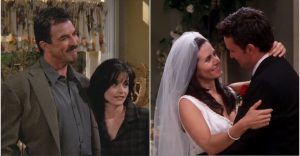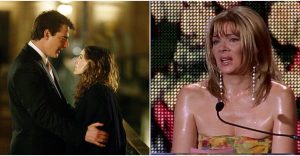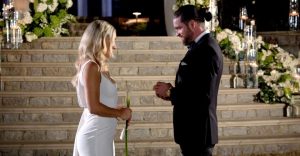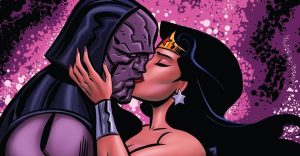These Cult Classic ’80s TV Shows Still Hold Up In 2020

The ’80s was a time of great exploration and expansion for television, with a wide variety of series disrupting the landscape of conventional sitcoms, westerns, soap operas, and dramas. With cable in more and more households with each passing year, as well as satellites making it possible for channels to be broadcast all around the United States, it was the dawn of a new era; the “marathon”.
Much like binging shows today, families tuned in to series that were offered in a serialized form of syndication -a change from the episodic format of the past- that paved the way for the Prestige TV of the ’90s and ’00s. Some series became cult classics, and had a mixture of creative concepts and universal themes that are still relevant today. While some series will forever be stuck in the past and a product of their time, these ’80s cult classics were ahead of it, made by groups of creative people bucking the limitations of the television medium.
10 Quantum Leap (1989 – 1993)

Quantum Leap chronicled a scientist’s travels through his lifetime via a quantum experiment, often taking the place of figures to correct certain historical mistakes while guided by his holographic best friend. The series frequently won Emmys for Best Makeup, Cinematography, and Editing as it explored iconic eras.
The heady blend of drama, humor, romance, science fiction, and social commentary inspired series like DC’s Legends of Tomorrow, The Librarians, and even Lost (“We have to go back!”). Its star believes that a reboot would be relevant right now, especially given its premise of walking in other people’s shoes and gaining new perspectives.
9 The Greatest American Hero (1981-1983)

Not to be confused with The Last Action Hero starring Arnold Schwarzenegger, The Greatest American Hero focused on a chipper high school teacher who, after being chosen by aliens to save the world, promptly loses the instruction manual that shows him how to work his super suit, forcing him to figure it out on his own while trying to be a superhero.
All series spoofing the superhero genre, from gritty versions like The Boys to colorful versions like The Tick and My Super Ex-Girlfriend owe this acclaimed satire for pioneering the lampooning of capes and callows by effectively combining action, comedy, and drama. It also boasts one of the best superhero theme songs ever (“Believe It Or Not (I’m Walking On Air)”).
8 Red Dwarf (1988 – 1999)

While American audiences enjoyed several different iterations of Star Trek and The Twilight Zone, science fiction wasn’t as popular in British television. That is, until the sudden debut of Red Dwarf, which followed the last remaining crew of a mining vessel after a dangerous radiation leak, leaving only one human, an incredibly irritating hologram, a human-cat hybrid, and the ship’s computer.
The underdog nature of the crew, combined with their irreverent humor, and sitcom mentality combined with Star Trek aesthetics championed modern series like The Orville and even Rick and Morty.
7 Star Trek: The Next Generation (1987-1994)

By the time that Star Trek: The Next Generation premiered, legions of Trekkies weren’t sure about following a new crew on the iconic Enterprise, much less sticking it out through serialized adventures when the original Star Trek was so self-contained. The topical discussions of classism, racism, and even gender identity boldly went where no Trek had gone before, but the world-building and characters helped the alien seem familiar to fans.
The Trek of a new era, the series was streamlined in every capacity, from the look of the sets, to the technology and special effects, and even the acting by the cast. Gone were the space cowboy tropes of the ’60s in favor of more egalitarian and philosophical archetypes that are found in the current Trek series today.
6 Hill Street Blues (1981-87)

While the vast majority of network TV cop shows in the ’80s were content with maintaining the same characters doing the same things, Hill Street Blues offered a dynamic change by showing ramifications and emotional consequences for its ensemble cast. It was an authentic, gritty, and realistic look at the life of cops in a large city, with the officers of the Hill Street Station facing their duties with gallows humor and surprising insightfulness.
The concept that crime, vice, and violence can be part of sophisticated storytelling is common today in series like The Wire and Deadwood, but the compelling series owe a debt to Hill Street Blues, a cop drama that discussed racism, civic corruption, inter-ethnic rivalries, and even homophobia with dignity and hard-hitting intelligence.
5 Cagney & Lacey (1981-88)

Even today, a series like Cagney & Lacey would be original. It chronicled two female cops investigating crimes and themselves, with the tough-talking Cagney and the astute Lacey proving to be formidable female role models. At one point, in the wake of the bombing of an abortion clinic, the series revealed that Lacey at one point had an abortion, and was pro-choice (in the ’60s long before they were legal).
While there are many co-ed police procedurals like Law & Order: Special Victims Unit, Castle, etc, there have only been a few series led by female leads unapologetically allowed to tackle feminine issues that would make viewers uncomfortable, with the biggest inspiration being Rizzoli & Isles (featuring a cop and a medical examiner).
4 The Golden Girls (1985-1992)

Several decades later, and The Golden Girls remains a groundbreaking series because of its unique premise built around the personal lives of four senior women. Until then, the golden years of any senior’s life was expected to be devoid of spontaneity, intrigue, and glamour, but not so for the Miami roommates who navigated careers, family, and sex with candor and aplomb.
That the series never shied away from topical discussions of homosexuality, gender identity, racism, sexism, and ageism meant the girls were ahead of their time, and is one of the premier reasons its cult status continues to gain traction. It certainly influenced the much-beloved Grace & Frankie, but more importantly, it was inspirational to series about younger women too, such as Sex and the City.
3 The Wonder Years (1988-1993)

Watching The Wonder Years it’s hard to believe it’s a period series based on the level of authenticity in capturing the turbulence and innocence of coming-of-age in the late ’60s and early ’70s. Told as an adult through the eyes of the youngest member of the Arnold family, it highlights his first love, friendships, and home life with surprising depth and clarity.
Shows like This Is Us and even Young Sheldon owe their winning formulas to The Wonder Years, which possesses a timelessness that doesn’t date it to either the period it takes place in or the ’80s. Covering everything from the rise of social activism, to awkward breakups, and the painful growing pains of youth, fans still find it relatable today.
2 The Young Ones (1982-1984)

Part of a new breed of series in British television, The Young Ones was created in response to the cultural habits and ideologies endemic in England throughout the ’60s and ’70s, themselves a response to post-WWII feelings of a return to social order in the Margaret Thatcher era. It focused on four social delinquents featured in uproariously comedic mishaps to a banging soundtrack of punk and metal bands.
Though it only aired for a few years, by the end of its time in the UK it jumped the pond and appeared as the first non-music related show on MTV in America, earning the lesser-known British comedy legions of new fans. It introduced them to famous British actors who appeared as guest stars, as well as bands like The Damned. It changed the face of comedy in the UK to something alternative, and Conan O’Brien has even proclaimed its influence on his comedic style during an appearance at the Oxford Union.
1 Remington Steele (1982-1987)

Before he was James Bond, Pierce Brosnan starred as Remington Steele, the made-up private investigator used by Laura Holt, a licensed PI who can’t gain any clients because they won’t hire a woman (no matter how qualified). To circumvent her problem, she creates the fictional boss “Remington Steele”, a former con man she shares her profits with if he secures her cases.
Not only does the series spoof James Bond movies and other crime dramas, but it also features witty dialogue and sophisticated fashion that still turns heads today. It also pioneered the “will they or won’t they” romantic tension between two strong-willed leads that’s considered default chemistry today in crime series like Bones and Castle.
About The Author

















